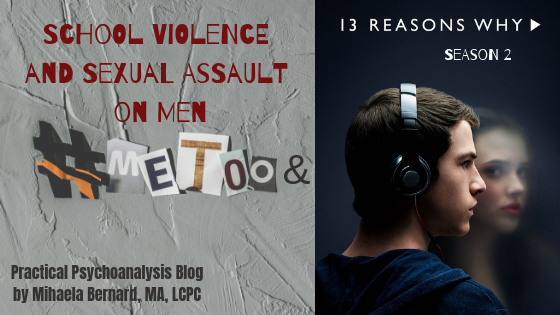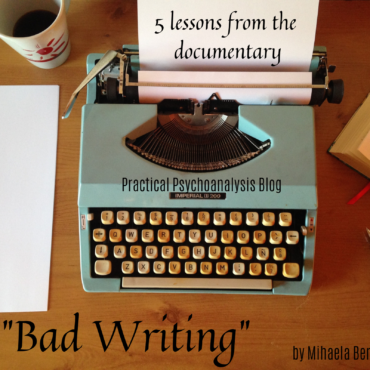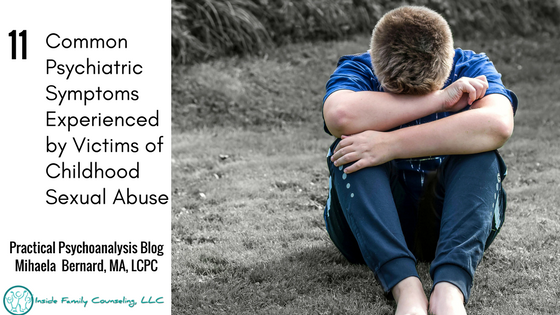
It has taken me some time since the first blog post on 13 Reasons Why to get to the second, and for a good reason. What I am about to talk about makes me cringe on the inside (alert, this blog posts contains spoilers for the series 13 Reason Why and may be triggering to those, who have a history of sexual violence in their past). I have heard stories similar to these many times in my clinical practice, working with survivors of sexual violence, both men and women, but this doesn’t make it any less difficult to hear, see or write about. Breaking the silence on sexual assault and raising awareness among those unaware or oblivious to the issue feels like an obligation. As a mother and a clinician, who listens to boys, girls, men and women talk hour after hour about the devastating consequences they face because of sexual violence in their past, I feel compelled to do something about a broken system that fails to protect children and adults from sexual violence, be it just by speaking up.
The failure of the paternal function
The last episode of Season 2 of “13 Reasons Why” does just that and begins with a spoken manifesto of the stories of women, who have been assaulted by a guy:
“I would never forget the sheer terror of feeling your weight on top of me, of not being able to breathe.”
“When I opened my eyes I was alone in the hot tub with him. There was… The way he looked at me, there was something in his eyes and I was afraid.”
“…and he pushed me down on the couch. He said he was glad I waited for him and he pulled off my jeans and my underwear.”
“He said if I showed my body better, people wouldn’t think I was a lesbian. He used a different word. And then he grabbed me.”
“At that moment we were left alone and he picked me up, he just picked me up and carried me behind the fence and he laid down on top of me and started to take my pants off. I fought and I fought but he was 18 and I was 12.”
“I found out later that this guy had a reputation. When he got up from my bed and left, my roommate rolled over and said it happened to most of the girls.”
“I was a second year associate, he invited me to a strategy meeting in his hotel room. He answered the door in his bathrobe. I spent the evening insisting we work on the case. At the end of that year, I was let go.”
“he was my youth pastor…, my second cousin.”
The voices of the women, hurt by sexual violence, are only to be followed by a sentence of 3 months probation for the perpetrator, Bryce, whose expensive lawyer, social status and male privilege leave him to appear untouchable. This is a story of the failure of the paternal function, i.e. our justice system and its failure to prosecute sexual offenders. We have seen it play out in real life over and over again – a famous football player and his victims, a rich college student and a poor black girl or a powerful lawyer and father from a predominantly Caucasian neighborhood and his teenage, troubled son.
Boys get assaulted too
The second season of 13 Reasons Why brings up yet another painful reality – men and boys get sexually assaulted as well– by priests, by their fathers, step-fathers, neighbors, bullies at school, congregation members or gang members on the street! We see this depicted through the story of Tyler Down in 13 Reasons Why. It is not my goal here to analyze his character or go into detail about his individual psychology throughout the series. What I do want is to use his characters as one example of male sexual assault that raises awareness to the boys on boys violence and school violence in general.
Tyler’s character in the series raises many questions, including the questions of voyeurism, school bullying, school violence, sexual assault on boys and even what is legally considered child pornography – the dissemination of nude photos through social media and private messaging among underaged adolescents. Tyler takes pictures of his peers, often without their consent, and this brings up the questions of voyorism and unlawful intrusion. Receiving naked pictures of peer’s private parts and naked bodies seems to be a norm among many teenagers today, which “13 Reasons Why” addressed on multiple occasions throughout the series – first when Hannah and her lesbian friend kiss in her bedroom and Tyler posts the picture on social media, and then when Clay shares Tyler’s nude behind with the whole school as a revenge for Hannah.
Tyler’s assault and school shootings
After a period of intensive therapeutic programming, Tyler returns to school to what he knows will be a tough transition back socially and emotionally. It’s unsettling and disturbing to see what happens for him shortly after his return. A school bully, whom I won’t even try to name, catches him alone in the school bathrooms and after beating him along with his bully friends, as if the humiliation of the beating wasn’t enough, rapes him with a broom in the school stalls and leaves him there hurt and powerless. This is a painful scene to watch. In fact, I believe I had to close my eyes…
It almost comes to no-one’s surprise when Tyler goes to take the weapons he has been hiding under his bed and almost attempts to shoot his perpetrators during the school prom night. With so many school shootings happening today, 13 Reasons Why really makes it real in the last episode of the second season. The rape becomes the trigger for this kid, who has been bullied for two years by his peers at school and has felt like an outcast, to turn his pain and hurt into an act of potentially deadly violence. To be honest, it felt pretty damn good to imagine him shoot this bully and rapist, the key word here, IMAGINE.
In real life, this would have ended tragically and the way Clay stood in front of Tyler to prevent him from going on a shooting spree would have probably ended with Clay’s death. In real life, Tyler would probably either end up killing himself or would get shot by the police in their efforts to stop him, and everyone would be left in awe as to why this otherwise peaceful-looking guy turned to such terrible actions. The secret of the rape would have died with him and we would have never known WHY.
Working with survivors and the importance of prevention
For clinicians like myself, who work with survivors of sexual assault or childhood sexual abuse, the concepts of secondary post-traumatic stress disorder and vicarious trauma are well known. Listening to what was never spoken about before takes a lot of time, patience, resilience and confrontation with one’s own unconscious. Without the right conditions in place, working with survivors of sexual violence can take a toll on the clinician much more serious than intrusive thoughts and nightmares. I have seen many clinicians burn out and even become ill themselves. This is HARD work.
For me, it sometimes manifests as fear to leave my kids in a sports class with two male coaches out of the irrational fear that if they needed to go and use the bathroom while in class, one of the coaches could take sexual advantage of them in the stalls. The thought comes for a split second and I am able to push it aside and go abound my day with the precondition, however, that I will talk to them about this later: “No one is allowed to touch your private parts or ask you to touch their private parts. Your body is your own and no-one can touch it without your permission. If anyone ever tried to do that to you, you need to say “No” and tell me right away.” And then I continue with an important piece of the puzzle: “You never touch or kiss or hug another person, kid or adult, without their permission. You do not touch another people’s private parts either. When you grow up, I can explain more about this.”
I say something of the sort without making too much fuss about it; the same way I wouldn’t make too much fuss about teaching a child about metamorphosis in butterflies or the migration of birds. Inside, my heart is pounding, however, knowing very well the seriousness and magnitude of what I am saying as well as of what I am not saying. It is important to have a conversation with kids about boundaries, sexuality, school bullying and privacy because troubled, trusted adults do take sexual advantage of children. We saw how this was portrayed in the movie “The Tale” with a prepubescent girl, whose perpetrator was “teaching her” about sex and her own body. (This in and of itself raises another question – could a man teach a woman about her body?) The conversation and what we say to our kids about sex and sexuality, bullies and violence will change as they mature and become pre-teens and later, adolescents. We need to talk to them and to teach them about love, dating, sex and intimacy just as much as we need to teach them about how to handle violence, aggression and bullies.
What’s important is that there IS a conversation. What is even more important is the role of both parents, especially that of the father, in the raising of socially responsible and moral human beings, who respect and value themselves enough to speak up and stand up for themselves when necessary. (I speak in more detail about this in another blog post about the function of the father according to psychoanalysis.) Because when there is a failure of the function of the father on individual, family or societal levels, we see devastating consequences like psychosis, sexual violence, school violence and school shootings, to name a few.








